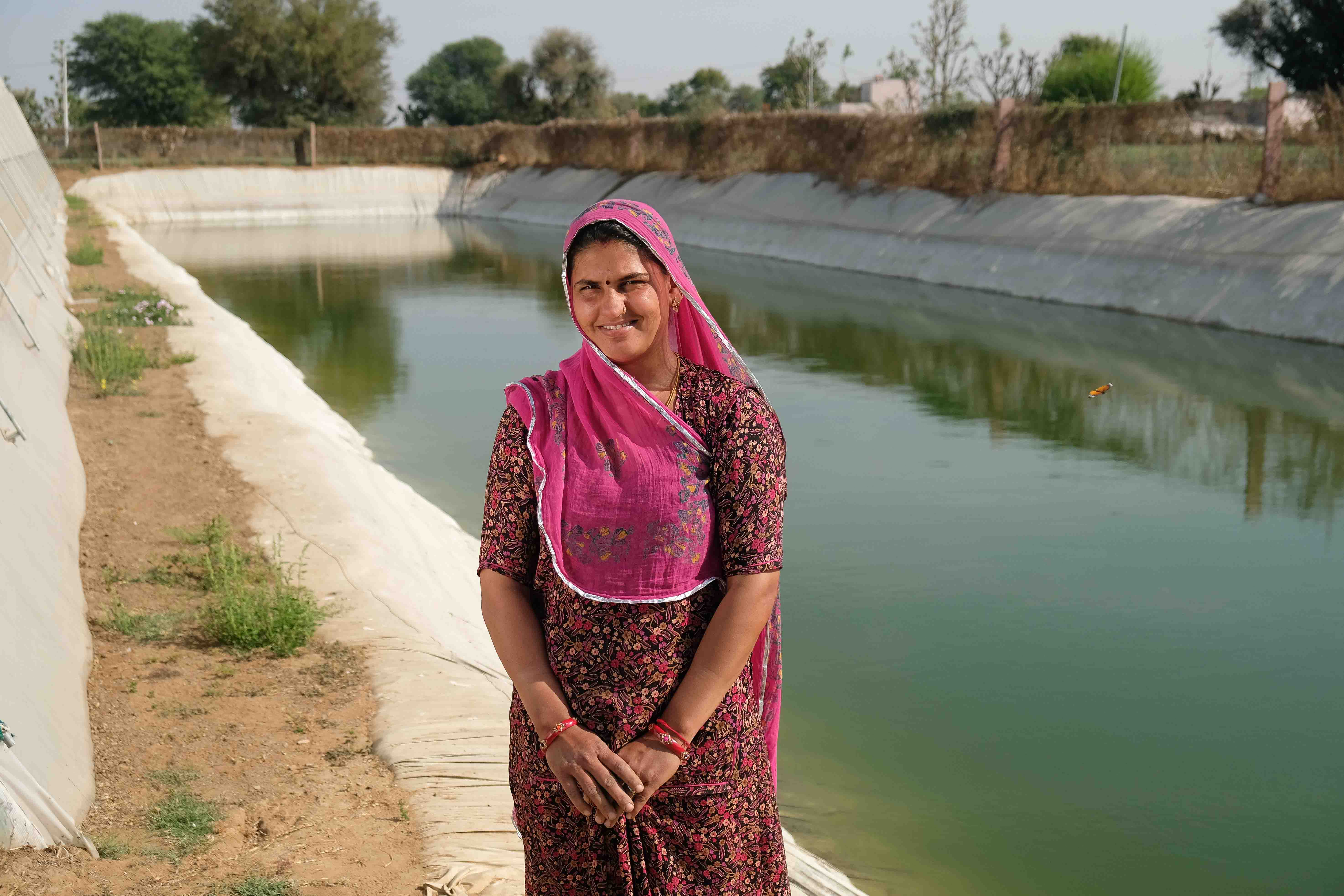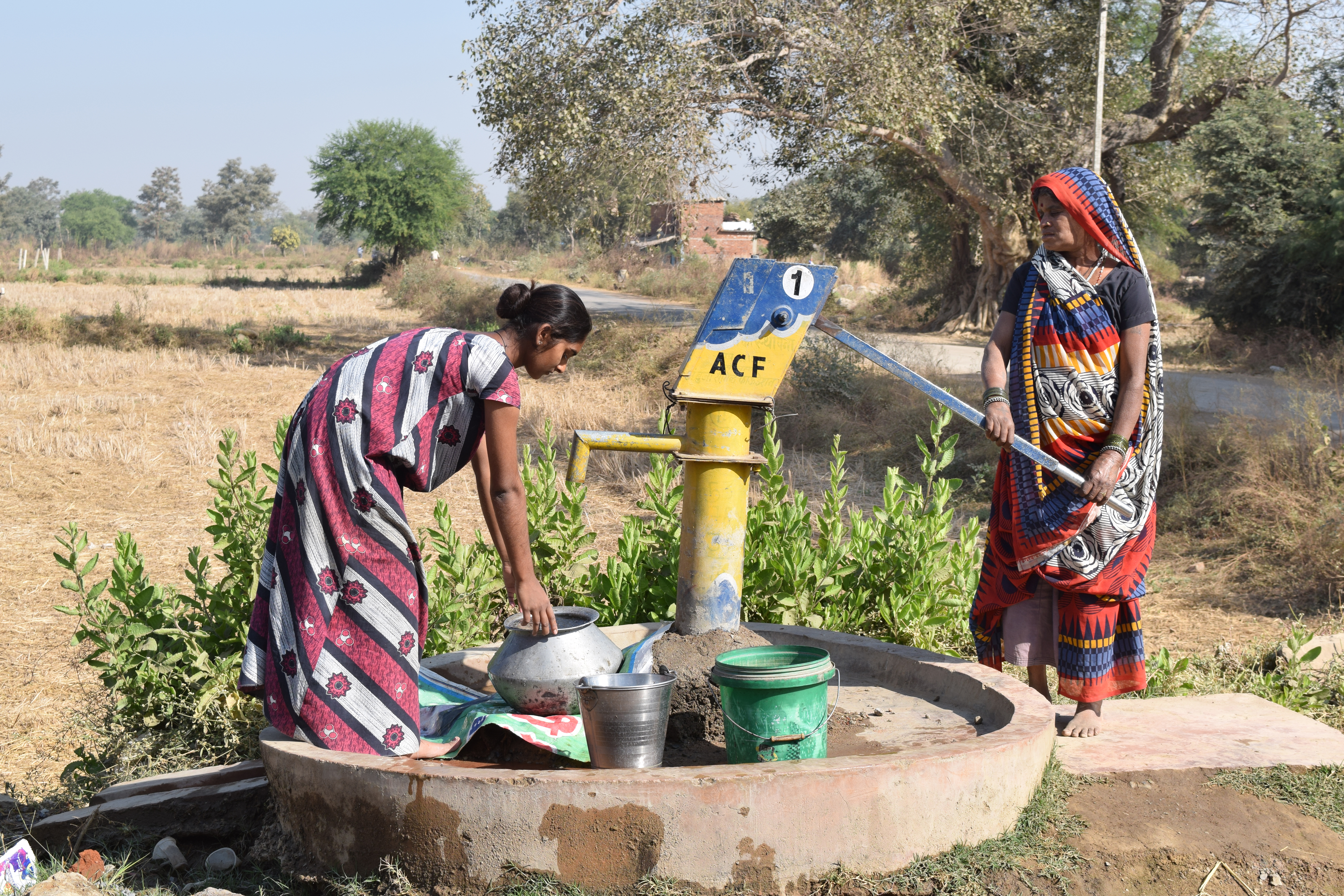Ambuja Foundation is putting rural water at the top of its agenda, in a heightened effort to highlight the imperative of this issue for rural sustainability and overall national prosperity.
Water remains the most pressing issue in India, with vast water shortages crippling families, communities and economies. Nowhere is this more starkly felt, than in rural India, where poverty is rife, and over 600 million *people face extreme water stress.
Speaking on the issue, Ambuja Foundation CEO, Pearl Tiwari said “From its inception, water has been a key issue for Ambuja Foundation, with our founder and Chairman Narotam Sekhsaria championing rural water for over 30years. The good thing is that as a country we have the answers, we simply need to roll up our sleeves and get to work. The time has come to stop talking, and start acting – drop by drop, village by village, we can turn things around.’
Agriculture – At the Heart of the Matter
As a cross-cutting issue, Ambuja Foundation reaffirms its position in the crucial area of tackling water management in the agricultural sector, which supports the livelihood of 70% of rural households.
“Sadly, farmers are both a victim, and a key perpetrator, of this national crisis. Groundwater use is completely unregulated, with catastrophic over-exploitation as a result – driven primarily by the agricultural industry.” She said. “And in today’s day and age, it is completely unnecessary.”
“Simple, low-cost technologies and solutions exist, which can not only reduce water consumption by the sector, but enhance both yield and profitability for farmers. It’s not rocket science – we simply need to showcase these solutions, and their benefits to farmers.” Ms Tiwari said frankly.
Scale Up of Solutions The Need of the Hour
Ambuja Foundation has been transforming rural communities, and their water story, for almost 30 years, and advocates the many simple solutions that farmers and rural communities can adopt to enhance water security.
“From solutions to address drinking water security – such as rooftop rainwater harvesting, water quality testing and revival of drinking water sources; to initiatives to curb water usage – such as micro irrigation, small lift irrigation and participatory groundwater management; and interventions to enhance livelihoods – including water harvesting & recharge structures, moisture conservation measures, and watershed.” She said.
“The knowledge and tools to reverse this crisis exist, but there is a need to scale up interventions.” Pearl Tiwari said.
Corporates & Philanthropists Can Play a Crucial Role
For this, there is a simple need for ‘more hands on deck’, with Ambuja Foundation calling for more partners to join the cause. “The Government is making significant strides in this area with extensive work by NABARD, the launch of More Crop Per Drop initiatives and other water initiatives like the formation of Jal Shakti, and the Jal Jeevan Mission. The time has come for more corporates, civil society and individuals to get involved.” Pearl Tiwari explained.
“Corporates along with individual philanthropists can play an important role in helping scale solutions, and in empowering communities to get back in the driver’s seat in terms of managing and taking ownership of their water.” He said.
“It is in everyone’s best interest that rural India thrives – and a big piece of that puzzle is access to water, for both domestic and livelihood purposes. India resides in its villages, and the agricultural sector plays a huge role in fuelling the economic engines of the country.” She outlined.
Using ‘Voice’ to Advocate the Issue
“It is our hope that our efforts in this area, and voice on the matter, catalyses people into action, so that we can avoid the catastrophic impacts that we are headed for.” Ms Tiwari said. “We plan to use that voice to advocate the issue with a call to action for more stakeholders to join the fight - via a significant push of the issue in formal media, online platforms, and at industry and community levels via live events.
*Niti Ayog 2018 Composite Water Management Index Report
https://www.fao.org/india/fao-in-india/india-at-a-glance/en/




